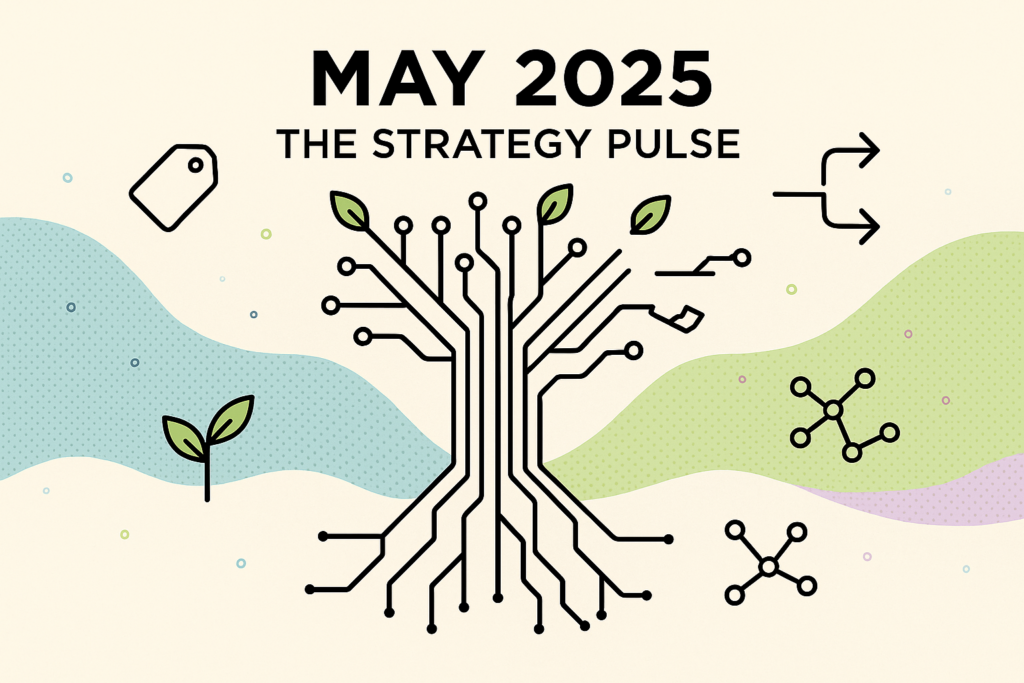Month: March 2022

The perils of accepting a counteroffer
The perils of accepting a counteroffer
March 30, 2022

The dreaded moment has come. It’s time to break the news to your boss: you’re moving on and pursuing another opportunity at a different company.
But then, a spanner in the works. You’re struck by an unexpected turn of events when, in a bid to keep you onboard, your boss responds with a counteroffer.
Naturally, you’re flattered. They must really value me, you think to yourself. They’re pulling out all the stops just because they can’t bear the thought of losing me.
Whilst this is definitely plausible, it’s important to remain vigilant when presented with a counteroffer. There is, of course, a chance that your employer will go out of their way to address your key concerns in order to keep you at the company, but this isn’t always the case.
Sometimes a counteroffer isn’t all it’s cracked up to be. Your company could be trying to keep you for the wrong reasons, and it’s all too common for the main component of a counteroffer to be a higher salary.
We’d be lying if we said that a pay rise isn’t an alluring prospect. It’s a shiny offering that your employer can dangle in front of you to seduce you to stay with them. As bewitching as it may be in the short-term, in many cases, the magic wears off quite quickly, and reality kicks in.
There are a number of reasons you should be sceptical about accepting a counteroffer, and we’ll be exploring a few of them.
Compromising on your needs
When you’re presented with the attractive offer of a pay rise, it can be hard to say no. It’s a quick-fix, but one that you might regret accepting in the long-term.
Before you made that initial decision to pursue career opportunities elsewhere, I’d bet you had stacked up a list of some pretty compelling reasons for leaving in the first place. You weighed them up in your mind, and determined that they were hefty enough justifications for making the decision to move on to a new role.
Occasionally, employers may address some of these core issues when presenting their employee with a counteroffer. But more often than not, a higher salary is the main sell of a counteroffer, and a higher salary does not make that towering pile of other problems and pain points vanish into thin air.

Deep down, you were driven by a subconscious urge to leave this job, and that urge will continue to linger so long as these other pain points go unaddressed. Whether it be the company culture, the lack of progression or the work itself; a combination of factors played into your decision to explore roles at other companies in the first place, and it’s unlikely that a counteroffer will be able to tackle all of the root causes of your dissatisfaction.
Ask yourself this: do you really see yourself at this company in the long-term? Or have you been won over by a salary increase to stay in a role that doesn’t align with your own personal values and goals?
The stats speak for themselves. Data shows that 50% of people who accept a counteroffer leave within 12 months of having done so. When asked about the impact of accepting a counteroffer, nearly 40% of a group of senior executives and HR leaders believed that doing so would ultimately negatively affect one’s career.
Money is the number one concern for just 12% of people who leave their jobs in pursuit of other opportunities, despite 89% of employers being convinced that a higher salary is the main motivator for their employees leaving. For the vast majority of us, a counteroffer based almost exclusively on an attractive pay rise is an unsustainable and unwise choice in the long run.
They may not think as highly of you as you think
As flattering and alluring as a counteroffer may initially seem, it’s important to remain aware of the reasons you’re being presented with that counteroffer in the first place. The reality may be that your employer realises that the cost of replacing you far outweighs the cost of keeping you by offering you a pay increase. They’re more than aware of the expense that comes with hiring someone new. Advertising a job, enlisting the help of recruiters, onboarding and training a new employee; it’s easy to see why your company would rather avoid the hassle and keep you around instead.
Don’t get us wrong – there’s always the chance that your company truly values you as an employee and doesn’t want to lose you, so they pull out all the stops to keep you and address all of your core concerns. But chances are, they’re trying to win you over for practicality and convenience’s sake.
Given the current candidate-short climate, it’s no surprise that employers are so reluctant to lose their grip on good quality employees. They don’t want to be left searching for high quality candidates in a market where they odds are stacked against them from the get-go.

Simply put, your absence would cause more disruption than your current employer is willing to go through. And though it may sound like tough love to put it so bluntly, they’d rather keep you because it’s far more convenient for them to do so.
Think of it this way. Your employer had the resources to pay you more and address your concerns before you stated your intention to leave, and yet they consciously chose not to. It was only when you presented them with the impetus of resigning that they decided to take your pain points seriously. Do they really value you if they didn’t tackle your core concerns until confronted with the reality that you planned to leave?
Incurring trust issues
Unfortunately, no matter how strong a relationship you managed to cultivate with your employer beforehand, your decision to seriously consider a new opportunity elsewhere is bound to impact the dynamic between you. Whether it be subtle or more overt, your boss will likely begin to question your loyalty. Regardless of how valid your reasons for leaving may have been, once you accept that counteroffer, your trust record at your company will be tainted.
This undoubtedly sets a dangerous precedent for your long-term future at the company. When the time comes for redundancies or pay cuts to be made, will you be first in line to face the axe? Though you ultimately opted to stay on, your loyalty will no doubt be questioned, and this could mean that your security in the role hangs in the balance. Your employer may subconsciously still have your near-resignation in mind when faced with such tough decisions. Indeed, many people say that they feel isolated within their organisation after having accepted their counteroffer and staying on in the role.

When posed with some potential downsides to accepting a counteroffer, 80% of senior executives and 60% of HR leaders came to the conclusion that a major con was the impact it would have on trust and reputation at the company.
Evidently, accepting a counteroffer isn’t always what it’s cracked up to be. There are worse positions to be in than having two opposing offers dangled in front of you; you may feel like a kid in a sweet shop, confronted with the impossible choice between strawberry laces and gummy worms. When you’re at this difficult crossroads, it can be hard to make a snap decision that’ll be best for you in the long-term. Use your powers of discernment to choose the right path, keeping in mind the points made here when making your decision. Listen to your gut, and don’t let yourself be short-changed.

Creating a personal brand
Creating a personal brand
March 23, 2022
When you hear the word ‘brand’, what comes to mind?
Most likely, your head is flooded with images of L’Oréal models whispering ‘because you’re worth it’, or Nike athletes telling you to ‘just do it’. Perhaps you have a fleeting mental image of Pretty Little Thing’s baby pink, unicorn-bedecked London black cabs, or Coca Cola’s classic red bottle in the hands of a jolly, flushed-cheeked Santa Claus.
Company branding is all around us, defining our experience as consumers. Having a strong brand is crucial for companies to build a genuine relationship with their clients, transforming the sales process from a brief exchange into a truly engaging experience.
But if you think that branding falls exclusively within the remit of businesses, think again.
Due to the prevalence of social media, it’s possible for candidates to establish a unique and personalised digital presence on professional platforms in order to make themselves visible to potential employers. Not just possible, but expected. According to BBC research, 43% of recruiters frequently check digital profiles, and a CareerBuilder survey found that 70% of all employers research prospective candidates online at any given point. In order to attract attention against a sea of competitors, it’s crucial to build a personal brand in order to stand out from the crowd.
But what does that really entail? As of late, ‘personal branding’ has become quite the buzzword that we hear echoing all around the LinkedIn community. But what does it truly mean and how do you go about achieving it for yourself? Read on to find out.
What is personal branding?
Personal branding is the act of creating an online professional presence that showcases your skills, achievements, and talents to a particular target audience. Though often tailored with prospective employers in mind, a personal brand is not exclusively built around the objective of finding a new job. You could simply want to reach other people in your industry to create a platform of like-minded thinkers.
There are many avenues you can go down in order to build a personal brand. Whilst LinkedIn is perhaps the most obvious choice, many people opt to create their own website or blog. This serves as a dedicated space for you to highlight your offering. Personal branding is by no means limited to the internet; you can work on your personal brand in the real world too, by networking at events and conferences.
Long gone are the days of sending off a faceless CV through a portal and hoping for the best. By harnessing the power of the internet, you can build a dynamic online profile that puts you in the spotlight.

A personal brand is formed through any and all platforms at your disposal – your cover letter, your LinkedIn profile, your CV, your website, your blog, even your interviews – they all fit together seamlessly to create an overall picture of who you are. You can paint a portrait of yourself as a skilled professional in your field, making sure that your personality shines through in the process.
The most effective company marketing campaigns place an emphasis on personality. We’ve all had a giggle as we scroll through TikTok and come across the Ryanair plane with animated human features lip-syncing to some trending audio, or the employee dressed up in the Duolingo bird costume lumbering down the hall and chasing their co-workers, wreaking havoc in head office. As Gary Vaynerchuk explains, these famous companies ‘don’t sell – they brand’. And you can do the same.
Tips for building your personal brand
Identify your USP
Just like businesses, you need to have a clear understanding of what your unique selling point is before you start marketing yourself online. When crafting a strong digital presence, lay bare all the key information about you that sets you apart in your field.
Make it distinctly clear to people who visit your online platform what industry you’re in. Let them know what particular skills you bring to the table, what certifications you have, what your specialism is, and what your strengths are. These factors all come together to form a strong personal brand; when you think about these key considerations, you’ll know which tone to adopt going forward when telling your story. Spell out who you are and what you’re offering to your target audience.
Map out your long-term plan
When building a personal brand, it’s crucial to have a sense of where you want to be in a few years’ time from the get-go. Create a five-year plan in order to determine how you can mould your online personality accordingly.
If you know where you want to be in the long-term, you can find and follow role models who are achieving some of the goals you aim to achieve. These individuals can then serve as a source of inspiration; they can guide and inspire your personal brand. What are they posting? How are they putting themselves out there and getting noticed?

Just be sure not to model your personal brand too closely off of theirs. Remember, the key to personal branding is remaining genuine, unique, and true to you. The reason companies such as Gymshark and Dunkin’ Donuts are so effective in their marketing is because they approach it in a unique way that is completely personal to them. Whilst they respond to trends and viral topics, they do so with their own personal flair, keeping brand identity at their core.
Don’t be afraid to make yourself heard
Piping up and expressing an opinion on a platform such as LinkedIn can be daunting. The site is dominated by the voices of industry top dogs and thought leaders. Trying to make your voice heard may feel like you’re in the audience of an opera, shouting at the top of your lungs but drowned out by the piercing voices coming from the stage towering above you.
Likewise, posting on your own website or blog can be incredibly intimidating, particularly if you don’t have an established audience. We’ve all been there; getting little to no traction on a piece of work you’ve put your blood, sweat, and tears into can feel like a fruitless endeavour.
Disheartening as this may be, it takes real determination and grit to put yourself out there in this way. And it’s crucial to keep in mind that everyone has to start somewhere. There’s nothing stopping you from posting content on these platforms; your opinion is just as valid as anyone else’s. If you have something creative, helpful or insightful to say to your target audience, post content directly onto your platform or else engage with others via comments on posts that come up on your feed. Even if only one person happens upon your content, they’re sure to be impressed by your passion and active participation on the platform. Fleshing out your online profiles with value-add content is a sure-fire way to attract positive attention.
Embrace networking
Both on – and offline, embrace networking opportunities as a means of putting yourself out there. Engage with others in your field to cultivate a valuable network, whether that be at conferences or more informal events.

Going into these networking settings, make sure that you have a clear sense of your personal brand. Once you’ve decked out your online profile, you’ll be able to translate your personal brand to the real world. So, by the time someone comes up to shake your hand, you’ll be able to introduce yourself whilst communicating your key skills and strengths concisely and effectively.
Remember, anyone can build a personal brand. But it’s important to keep in mind that you should always remain genuine; constructing an artificial personality for the sake of getting hired is transparent and ineffective. And it’s crucial to remember that cultivating a personal brand is an ongoing process; as digital platforms evolve and develop, so you must adapt your online presence accordingly.

On the absence of women in the data sector
On the absence of women in the data sector
March 12, 2022

We’re likely all aware that men disproportionately outnumber women in the data field. Women constitute just 26% of the global data and AI workforce; there is only one female data analyst or scientist for every four of her male counterparts. This is a worrying statistic, considering the significant role that data plays in our lives. In order to avoid bias in data models, society needs to collectively pave the way for more women to enter the data sector. As International Women’s Day is now upon us, let’s seize the opportunity to address some of the factors contributing to this issue, and examine some potential ways of overcoming it.
The stigma of STEM subjects
A lack of women pursuing careers in data and analytics is a symptom of a broader societal problem. As it stands, women constitute just 14.4% of all people in the UK working in a STEM-related industry. This is a deep-rooted issue that spans all the way back to childhood, as many young girls are implicitly conditioned to believe that they should steer clear of STEM subjects.
Girls opting to avoid studying STEM subjects beyond school level has nothing to do with a lack of ability on their part. In fact, in gender-neutral countries where an emphasis is placed on equality, girls actually tend to outperform boys at school in subjects such as maths and science. For example, in Iceland, according to one study, the maths scores obtained by girls actually surpassed the grades of the boys by 14.5 points.
An invisible barrier has been constructed around women entering STEM. Whilst there is no biological reason for men rather than women to pursue STEM subjects, women are frequently less confident in their abilities than their male counterparts. Despite performing better in class work in science and maths classes, girls typically do not perform as well as boys in an exam setting, as stated in a Guardian article describing the study. As part of a survey by the OECD, when posed with the statement ‘I am just not good with mathematics’, 41% of girls agreed compared with just 24% of boys. We tend to be drawn towards the careers which think we would be most competent in.
This is a problem embedded in educational institutions. This, alongside sexist messaging in media and in society in general, all combine to impose gender stereotypes on children from a young age. When one survey asked children what they thought the most important traits in girls and boys were, the overall consensus was that the second most important trait for girls to possess was ‘being caring’, which can in part account for the large number of girls who go on to pursue HEED subjects (health, elementary education and domestic). It’s clear how gender conventions can contribute to this absence of women in the STEM sector.
In order to see more women entering the data field and STEM-related careers in general, we need to be encouraging girls from a young age to consider STEM subjects, instilling them with confidence and empowering them to change the narrative.
Breaking down barriers
In order to break down the barriers of entry into the data world for women, companies need to be aware of the importance of hiring female data scientists and analysts. It would ultimately lead to more accurate consumer insights.
Data has an impact on all areas of our lives. And when this data is exclusively in the hands of men, it will naturally be limited and leave out certain important factors and considerations. A diverse group of analysts is needed in order to cultivate truly representative data models.
In a world where 49% of people are women, it is in the interest of companies to have female data scientists working for them, in order to cater to a wider audience. Women can offer a unique perspective on the world of data. In the past, there have been numerous scandals involving AI algorithms and data models giving biased outcomes due in part to the inherent male outlook of many data scientists and analysts.
Companies should also re-evaluate their expectations from people seeking to enter the data field. As it stands, it’s very difficult for recent graduates to meet the expectations perfectly for an entry level data job, as they’re often expected to possess a number of technical skills, some level of experience, and a prestigious degree to match. Research shows that whilst men apply for jobs where they meet just 60% of the requirements, women do not apply unless they match the requirements 100%. This means that more men are taking a leap of faith and receiving job offers in the data sector. In order to break down the barriers for women, companies hiring for data roles should be more open-minded to employing people with different skillsets and from different academic backgrounds, taking the time to train individuals who show potential.
Many women avoid data jobs from the outset due to the negative perceptions associated with it. According to BCG research, 81% of women studying a data-science related subject regard the field as ‘significantly more competitive’ than other career options. The data field requires an image overhaul in order to appeal to a more diverse group of prospective employees.
Increasing awareness
One potential cause of the absence of women in data science is that data roles may not even appear on their radar; they might lack information on what a career in data would entail. Young women should be surrounded by role models in the data sphere who they are able to look up to. This exposes them to the potential paths available to them in the future.
Conferences and events hosted by organisations dedicated to seeing more women in data roles (such as Women in Big Data, Women in Data and Women in Analytics, to name just a few) play a crucial function in cultivating a community of women in a male-dominated industry, who can motivate each other and increase awareness of data roles. These events allow women to share their experiences working in the data sector and inspire others. They’re platforms dedicated to the championing of women in data.
By hosting inspiring, motivational and informative events, these organisations inspire women to seek opportunities in the data industry.
An important feature of many of these organisations is that they are not open exclusively to women. Equally as important to the cause is male allyship; men working in the data field should also be supporting their female counterparts.
Despite the current gender inequality in the data sector, things are moving in the right direction. As long as society works to shine a spotlight on the issue and pinpoint potential solutions to this imbalance, positive change could be on the horizon, but it will not come without an institutional overhaul and significant attitude shifts from those already established in the data sector.

Starting a new job in style: the art of a great first impression
Starting a new job in style: the art of a great first impression
March 3, 2022

You’ve officially done it. You applied for the job, went through the arduous hiring process, and you’ve come out the other end successful. You’ve signed your new contract and bid your old job farewell. The hard part is over. Now, all you have to do is waltz into your new office on day one, armed with confidence, and you’re guaranteed to be a hit. Right?
If only it were that easy. As exciting as a fresh start can be, beginning a new job is often quite a daunting experience. Many of us have undoubtedly suffered through that dreaded sleepless night before the big first day; you toss and turn, the hours crawling by, as your mind whirrs away at a hundred miles per hour.
Whilst it’s completely normal to experience these first day jitters, there are proven ways you can reduce your anxiety in the build-up to a new job. Ensure that you’re making the best possible first impression by following these basic principles during the early stages in your new role.
Come prepared
There are steps you can take before even stepping foot in the office to make sure you’re as prepared as possible for your new job.
Create a positive first impression by asking your new boss if there’s any way you can prepare in the lead up to your future role. Instead of twiddling your thumbs and worrying about anything you could be doing to stand you in good stead, be proactive and lay the groundwork for future success.
Ask your boss whether there’s any company material or resources you can get your hands on beforehand. Or, ask if there are any tools or processes you should become familiar with before getting started on the job. However, the key is not to overdo it. You don’t want to come across as a nuisance, pestering your boss before you’ve even begun. Show willing, but don’t be pushy.
Just remember: the more prepared you feel beforehand, the less you feel like you’re diving head-first into the unknown.
Look the part
So, the day has finally come. Your new job begins today. You hop out of bed and fling open your wardrobe doors: a whole new wave of anxiety washes over you as you ruminate over what to wear.
There’s an easy way you can steer clear of this dilemma. Have a clear sense in mind of the dress code by researching it beforehand. And if your research proves fruitless, then it’s always better to be overdressed than underdressed.
To make sure that the morning of your first day at work runs smoothly, choose your outfit the evening before and lay it out ready for the day ahead. This will help you avoid any unnecessary stress that would otherwise cloud your morning.
Don’t underestimate the power of a smart work outfit. Research by Princeton psychologists Alexander Todorov and Janine Willis concluded that people form a first impression in just a tenth of a second; so, appearances really do count. Choose clothes for work that you feel outwardly express your best qualities; an outfit speaks a thousand words.

The way you dress at work, especially in the early days, can have an impact on your performance as well. Subconsciously, dressing well and putting an effort into your appearance can make you feel more prepared and motivated for the day ahead. What you wear can have psychological implications; one study conducted by Northwestern University found that people performed better on a test when they wore a scientist’s white lab coat.
Arrive bright and early
To really ensure that you’re making that positive first impression from the very beginning, be sure to arrive early on your first day (and for the rest of your first week). When it comes to starting a new job, it’s an unspoken rule that arriving on time is the same as arriving late. Arriving early gives you a chance to gauge the lay of the land; to assess your surroundings before you’re bombarded by a sea of co-workers, which can be quite overwhelming. It’s wise to be one of the first people in the office so that you can meet your colleagues gradually rather than all at once.
Be eager to learn
Throughout the working day, do not shy away from asking questions. Pretending to know the answers to everything is a pointless endeavour, and it’s likely that those around you will respect you more for asking for help when you need it. In these initial stages of your new job, you have every right to establish exactly what’s expected of you and inquire when you face uncertainty.

However, make sure that the questions you’re posing actually add value to what you’re doing. You don’t want to ask questions for the sake of it, just to come across as keen and willing. If you’re confronted with a difficulty, the early stage of your job is the time to address it, but overbearing your colleagues with superficial questions can be transparent and bothersome.
Make sure to demonstrate that you’re actively absorbing helpful information that your colleagues give to you. Bring a notebook along during your first week to quickly jot down any useful snippets of information when you hear them. However, avoid using the Notes app on your phone to do this; regardless of how good your intentions may be, having your face glued to your phone can have a negative impact on your co-workers’ perception of you.
Being eager to learn also means being open to new ways of doing things. No matter how used to a certain routine you may be, avoid harping on about the superiority of old methodologies at your previous companies; be open-minded to new teachings, as you could learn a thing or two.
Get to know your colleagues
A great way to truly make a positive impression is by making a genuine effort to immerse yourself in your new team. During your lunch break, actively try to get to know your co-workers. Whilst trying to impress your boss is all well and good, creating a positive impression amongst your co-workers is what will ultimately make your transition into a new career as seamless as possible.
There’s one crucial thing to keep in mind, however. Be cautious that whilst you’re getting to know your colleagues, you remain professional throughout. Avoid engaging in petty office drama, as you don’t want to gain a negative reputation as a gossip. These early days are crucial in cultivating a positive impression. So, leave your personal problems outside of the office space and remain professional in your interaction with colleagues.
Have a gameplan
Use your first few weeks in a new job wisely. Now is this time to formulate a long-term plan. A good starting point is creating a 90-day plan, with clear goals and tasks that will get you to where you want to be. Use the early days to lay the foundations for long-term success, mapping out your path for the future.

Ultimately, there’s a crucial thing to keep in mind when starting a new job to keep the nerves at bay. Remember that this company already likes you. They chose to hire you, meaning that they saw your potential and envisaged you thriving at their company. All you need to do now is prove them right by bringing the best version of yourself to the table.

